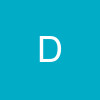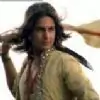333 BC: Gordium. Phrygia: Alexander of Macedon, later to be called Alexander the Great, faces the incredibly complicated Gordian knot that had, for centuries past, tied an ox cart to a pole in the palace of the former kings of Phrygia, then a province of the Persian empire. An oracle had prophesied that the one to untie the knot would become the king of Asia.
Alexander surveys the knot, and realizing that no conventional methods would work, slices it in half with a single stroke of his sword, producing the required ends. This was the "Alexandrian solution" for the intractable problem of the Gordian knot.
The oracle's prophecy was fufilled, for Alexander did go on to conquer Asia as far as the Indus. But not India.
1562 AD: Amer, Rajputana: Shahenshah Jalaluddin Mohammed faces the statue of the Devi Maa in the Mahakali mandir near Amer, listening to his wife, Jodha. He turns to her, his eyes wide in incredulous shock?- or is it dismay? - and repeats what she has just said was her only sankalp before the goddess: To aap hamara sar inke kadmon mein rakhna chahti hain?
It is more of a statement than a question, for he knows his Begum Jodha, and when he sees her eyes, normally serene after her pooja, now clouded with tears of frustration, he realises that this is, for her, a matter of her salvation.
He turns away from Jodha and moves towards the huge statue of the Devi Maa, in her ugra kapalakundala roop, festooned only with floral garlands. He looks up at the Devi for a long moment, his eyes dark with both sadness and a troubled appeal.
The courage of his convictions: There is a perceptible hesitation, for no one should underestimate what this gesture costs him. What he is about to do would be taken as butparasti (idol worship), specifically forbidden in Islam. If anyone had spread the word across the Mughal sultanate that their Shahenshah had paid obeisance to a Hindu but, there would have been an uproar, and not only among the maulvis. Even decades later , when he had long been the all powerful Emperor Akbar, his initiative to found a syncretist religion merging Islam and Hinduism, the Din-e-Ilahi, had attracted widespread criticism. Now he is, as yet, nowhere near that level of unquestioned domination, so the risks are that much more.
Still, he does not hesitate, for in Jodha's troubled and angry gaze, he sees not just the woman whose acceptance he craves, even if only subconsciously as yet, whose barely veiled hostility hurts him like nothing ever before.
He sees the whole of the Hindustan that he wishes to unite under his rule, not by brute force,but thru willing acceptance. Na ki shamsheer ki dhar se, par rishton ke reshmi dhagon me piroke.To win the heart of this Hindustan, he knows now what he has to do. For them to accept him, he has first to accept them.
Jalal already has the breadth of spiritual vision, the inner clarity, that lets him see his Allah in the Devi. Not many even today, anywhere in the world, are able to do that, for all the current politically correct patter about accepting all religions. And in the 16th century, when Protestants and Catholics were massacring each other and burning each other at the stake all over Europe and in England, for the Emperor Jalaluddin Mohammed to demonstrate such purity of thought, such innate humanisn, was nothing short of a miracle.
And this is not just because of Jodha, for even if she might have been the catalyst for this specific act of his, she is not the sole motivation for it. It is about something infinitely bigger and grander, Jalal's vision for this vast land that he hopes to rule one day in peace and prosperity.
Epiphany: the Gordian knot untied:
Slowly, he goes down on his knees, his face once more upturned to the Devi's. There is the same questioning look, the mute appeal to Her. Is he asking Her whether She will accept him?
He bends down to the floor and pays obeisance to the Devi, his forehead at Her feet, and kisses the ground in the gesture of submission that is traditional for him. As he rises, his forehead is stained red with the kumkum.The Devi Maa has blessed him. His prayers have been answered. His sins, both those committed knowingly and those committed in his name, but unknown to him, have been forgiven.
In that one gesture of self-surrender to the Universal Divine, which he is able to perceive in the alien Devi Mahakali, in that act of submission to this Divine heedless of his ego, Jalaluddin Mohammed becomes Akbar.
All that followed in the years and decades to come was but the embellishment of the basic structure that was established in that single moment of epiphany.
The Gordian knot of incomprehension, of a sense of acute oppression, of discrimination, and of the resulting hostility and hatred, that divided Jalal, and the Mughal rule he embodied, from the Hindustan of his dreams was sliced thru as surely as the original one had been by Alexander's sword.
Jalal now turns to face Jodha, whose unblinking eyes are incredulous with. what? Amazement? Disbelief? His own are now serene and untroubled, reflecting the peace that now pervades his zehen, yet bright and lit with an inner conviction. Then he speaks:
Kisike kadmon par sar rakhne ke liye, sar katane ki zaroorat nahin hoti, Jodha Begum. Sar jhukana hi kaafi hota hai.
I do not know if Jodha understands the true import of this, of what he has done and why, or of what it has meant for him to do it. Imagination was never her strong point.
But what she says next, in the precap, with a resurgence of angry tears, about the despoiling of the temple and the looting of the Dev Maa's sacred aabhooshan (jewellery), seems to indicate that she does not understand. For it is in the same hostile, bitter tone in which she was earlier mentioning her sankalp. The sense of dismay with which he asks as to who had committed that shameful act conveys nothing to her, for she never has ears for the nuances in what he says, not to speak of what he means but does not say.
He will undoubtedly clarify today that he knew nothing of the outrage, and will gift new jewellery for the Goddess to make up for what was looted by his men, as a gesture of both apology and prayaschitta. He will be universally hailed for this by the vast majority of the Rajputs, and this will mark the beginning of the success of Akbar's strategy for Rajputana. A strategy that will bear rich fruit during the rest of his long 49 year reign.
The other Gordian Knot: By all logic, what Jalal does at the Mahakali mandir and after should cut thru the other Gordian knot, the one in Jodha's zehen. Cut thru the wall of mistrust, of acute, if now slightly blurred hostility towards the husband she is now saddled with that emerges at the slightest pretext. Hostility amounting to hatred, founded on the Jalal the Jallad image that she has nurtured, with and without justification, for years, and which she is now reluctant to abandon.
For what he does is also to free Jodha from the agony and frustration of being unable to fulfill the sankalp she had made to the Goddess. Being far more sensitive to her feelings than she is to his, he understands this perfectly, and finds an inspired solution to her dilemma that should both relieve her and earn her gratitude, if not her affection. Whether this happens remains to be seen.
Jalal & Jodha: veiled bitterness: The abundance of Jalal-Jodha bickering - the endless applications of lep (there must have been an acute shortage of the concerned jadi booti in the whole of Hindustan by now!😉) to a clothed and then a bare chested Jalal (I will refrain from any further reference to muscle definition!😉😉 But I could not understand the need to take off his tunic for applying lep to the back of his neck), the head massage - was all more or less predictable and pleasant, without setting whatever river flows thru Amer on fire.
Jalal's crack about the Shahenshah ki izzat ko had me in stitches, it was even better, and decidedly naughtier, than the one about the bichchoo and saanp the night before.😉
But what struck me, in all this relentless, mischievous, flirtatious badinage from Jalal's side, was the periodic surfacing of a very evident bitterness. It is there when he says, offhandedly and seemingly in fun:
Aap jab bhi hamare pas aati hain to aapko koyi zaroori baat hi karni hoti hai..
Chaliye, isi bahane aapne hamein bahadur aur jangbaaz to samajha..
To yeh baat hai! Aur hamein ek pal ke liye laga ki hamari begum ko hamari fikar hone lagi hai, par aapko to aapke walid sahib ki fikar hai.. (Jodha, predictably, looks totally blank, and continues, as if he had not said anything at all , to expatiate on how much she loves her Bapusa)
Khuda ka shukar hai ki aap kisise to mohabbat karti hain, Jodha Begum! Koyi to hai jo aapse mehfooz hai!
And then at the Kali mandir, Jab aap hamare saath hain, to hamein kis aur se khatra kaise ho sakta hai? Aur phir hamein kuch ho bhi jai, so aapka lep to hai hi!
She listens to all of this half resentfully, half in resignation, but she is deaf to the undercurrent beneath his jibes. Deaf to his unspoken need for her, not to love him, but to care for him, for what happens to him. If not as much as she cares for her family, at least some fraction thereof .
The day she begins to hear that unspoken plea, that will be the day their relationship will leave behind all this juvenile bickering, and will, finally, grow up .
Jalal has already come far more than halfway to meet her. Now it is up to her. Maybe the next attack planned by Adham will, before it fails, push her to cross her personal Rubicon, and to walk the last stretch to meet him.
Joke of the day: Bharmal, who was not present at the main gate of the Amer fort to greet his javaisa the Shahenshah, leaving Jalal to the care of his sons, while personally escorting Kunwar Pratap, not even the Yuvraj of Mewar, to his rooms, for all the world as if he was his ADC. It was beyond ridiculous.
Scene of the day: The relentlessly hyped face to face encounter between Jalal and Pratap. It was so stagey and affected, and so obviously meant to impress us that it was almost amusing. The wooden faced Pratap did not disappoint me, never departing from the flat monotone which characterizes all his utterances. Jalal was of course far more nuanced and subtle, but Rajat had no one and nothing to play off, and there was only so much even he could so with that scene.
Finally, I almost expected a large announcement at the bottom of the frame when they were eyeing each other : YAHAN, SHAHENSHAH JALALUDDIN AUR MAHARANA PRATAP, US SADI KE DO MAHAAN HASTIYON KA AAMNA SAAMNA HUA!😉
Rather like the caption of the frame in the 1982 film, Coolie , when it was released after Amitabh Bachchan's recovery from near death, showing the exact moment when Amitabh took that mistimed, almost fatal punch to his abdomen!
Shyamala B.Cowsik







































68